News
-
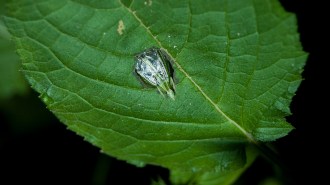 Animals
AnimalsSmall, quiet crickets turn leaves into megaphones to blare their mating call
A carefully crafted leaf can double the volume of a male tree cricket’s song, helping it compete with larger, louder males for females.
-
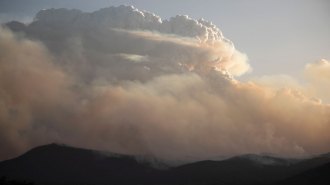 Earth
EarthTowering fire-fueled thunderclouds can spew as many aerosols as volcanic eruptions
A massive plume of smoke lofted into the stratosphere during Australia’s fires may represent a new class of “volcanic-scale” pyrocumulonimbus clouds.
-
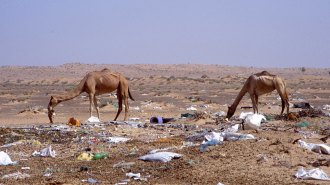 Animals
AnimalsPlastic waste forms huge, deadly masses in camel guts
Eating plastic isn’t just a sea animal problem. Researchers found suitcase-sized masses of plastic in dromedaries’ guts in the United Arab Emirates.
By Asher Jones -
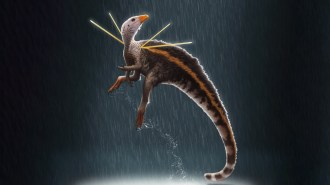 Life
LifeA newfound feathered dinosaur sported fuzz and weird rods on its shoulders
A Brazilian dinosaur with stiffened pairs of ribbonlike feathers emerging from the shoulders is unlike any found before.
-
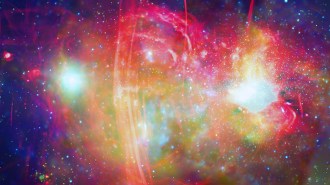 Astronomy
AstronomyThe Milky Way’s central black hole may have turned nearby red giant stars blue
A powerful blast from the supermassive black hole at the Milky Way’s center may explain the lack of large, red stars there.
By Ken Croswell -
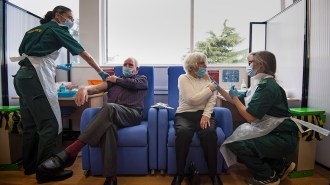 Health & Medicine
Health & MedicineThe FDA has authorized Pfizer’s COVID-19 vaccine. Now what?
It’s the first to win emergency use approval in the United States.
-
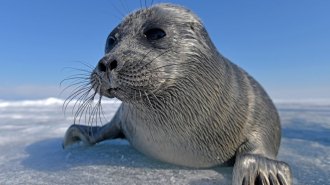 Animals
AnimalsUsing comb-shaped teeth, Baikal seals feed on tiny crustaceans like whales do
Seals in Lake Baikal use comb-shaped teeth to catch scores of amphipods, a study finds. The diet may be behind the seals’ relative success.
By Jake Buehler -
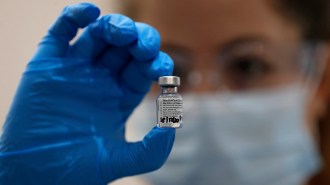 Health & Medicine
Health & MedicineExperts recommend the FDA approve Pfizer’s COVID-19 vaccine for emergency use
Pfizer-BioNTech’s COVID-19 vaccine is one step closer to emergency use authorization in the United States.
-
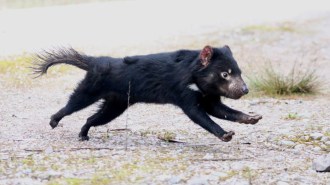 Animals
AnimalsA highly contagious face cancer may not wipe out Tasmanian devils after all
Devil facial tumor disease has killed so many Tasmanian devils that it was feared they would die out. But a new analysis finds its spread is slowing.
-
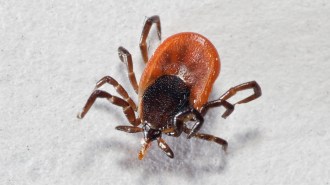 Health & Medicine
Health & MedicineHow some ticks protect themselves from deadly bacteria on human skin
A gene that ticks acquired from bacteria 40 million years ago may help the arachnids keep potential pathogens at bay while feeding on blood.
-
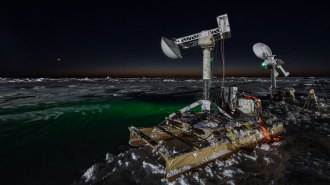 Earth
EarthIn the past 15 years, climate change has transformed the Arctic
Accumulating evidence and new tools have helped scientists better understand how the Arctic is changing, but the pace has been faster than expected.
-
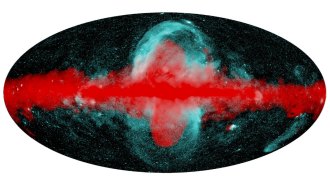 Astronomy
AstronomyEnormous X-ray bubbles balloon from the center of the Milky Way
Images from the the eROSITA telescope reveal X-ray–emitting blobs surrounding gamma-ray bubbles.